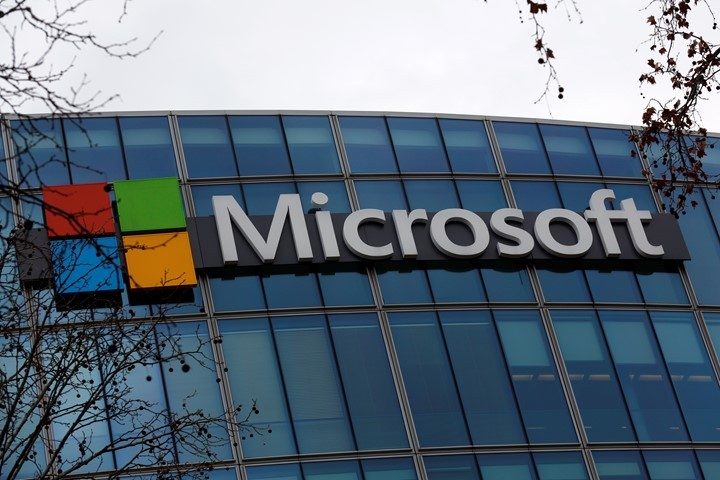
Microsoft is on a quest to ensure its voice remains a dominant one within the Silicon Valley technocracy.
The Bill Gates-founded technology company has long been one of the major players in the world of Big Tech owing to its flagship product, the Windows operating system.
But Microsoft’s forays into other technologies increasingly relevant in the modern world have often floundered. Remember the Windows Phone? And how many people use Microsoft Edge over Chrome? Even the Microsoft-purchased Skype has been supplanted in popularity by the China-linked Zoom.
Now, Microsoft is apparently eyeing a major revitalization, with reports of planned acquisitions in fields such as artificial intelligence (AI), social media, and messaging.
On Monday, the company announced that it would buy Nuance Communications, a software enterprise that uses AI to facilitate speech recognition. Microsoft will make the purchase in an all-cash transaction valued at $19.7 billion.
Microsoft’s press release about the acquisition explains that it will place the Windows creator in a stronger position within the healthcare sector:
By augmenting the Microsoft Cloud for Healthcare with Nuance’s solutions, as well as the benefit of Nuance’s expertise and relationships with EHR systems providers, Microsoft will be better able to empower healthcare providers through the power of ambient clinical intelligence and other Microsoft cloud services. The acquisition will double Microsoft’s total addressable market (TAM) in the healthcare provider space, bringing the company’s TAM in healthcare to nearly $500 billion….
“Nuance provides the AI layer at the healthcare point of delivery and is a pioneer in the real-world application of enterprise AI,” said Satya Nadella, CEO, Microsoft. “AI is technology’s most important priority, and healthcare is its most urgent application. Together, with our partner ecosystem, we will put advanced AI solutions into the hands of professionals everywhere to drive better decision-making and create more meaningful connections, as we accelerate growth of Microsoft Cloud for Healthcare and Nuance.”
Nuance also leverages its technology to create digital and biometric solutions and products for use in other industries.
The Nuance purchase will be Microsoft’s second-biggest acquisition since it bought the professional networking social-media platform LinkedIn for $26.2 billion in 2016.
In September, Microsoft poured $7.5 billion into buying ZeniMax Media, a big video-game holding company. The move is part of an effort by Microsoft to strengthen its place in the cloud-gaming industry, which is expected to grow in worldwide revenue to $4.5 billion by 2024, up from $500 million in 2019.
Microsoft is also reportedly in advanced talks to purchase Discord, a video-game chat community with capability for voice and video that has increasingly become a popular way for individuals and groups to communicate with one another.
If Microsoft bought Discord, it could viably compete against other Big Tech firms in the messaging market, such as Facebook, which owns Messenger, WhatsApp, and Instagram. It would also allow it to tap into a large community and thus have the type of user-facing platform that firms such as Amazon and social-media platforms currently enjoy.
Microsoft had unsuccessfully attempted to buy the video-sharing social-media app TikTok, which the Trump administration warned was putting users’ information in the hands of Communist China. And in February, Microsoft allegedly attempted to buy the pinboard platform Pinterest. The $51 billion offer would have made the deal even bigger than the acquisition of LinkedIn. Yet again, the attempt was unsuccessful.
Acquiring Discord would give Microsoft access to a strong, already-established community of not only users but content creators, helping it to achieve what Facebook does with Instagram or Google with YouTube. Additionally, Discord is popular with Generation Z; the acquisition will give Microsoft greater influence over a younger generation of consumers.
Microsoft has already made smaller purchases of communities. Besides LinkedIn, Microsoft purchased the studio behind the popular online game Minecraft. It also bought the Internet hosting provider GitHub for $7.5 billion.
If Microsoft’s plans are successful, the company will be able to control more of what people — especially young people — see, hear, and think.
Should Americans be worried that a small group of corporations that have shown themselves to be socialist sympathizers and cozy with the Chinese Communist Party are buying up the entire tech and digital infrastructure in the country?
These concerns have prompted proposals from some Republicans, such as Senator Josh Hawley (R-Mo.), who this week introduced his Trust-Busting for the Twenty-First Century Act to further empower federal regulators to break the monopolistic practices of Big Tech firms.



